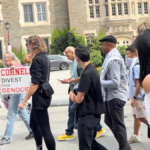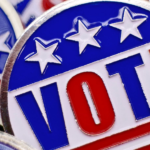Just In News | The Hill
Health Care
Health Care
<!–
The Big Story
Kaiser workers tentatively end historic strike
Kaiser Permanente and a coalition of unions reached a tentative deal on Friday, ending the largest health care labor dispute in U.S. history.
© AP
The agreement puts an end to a labor dispute over low wages and staffing shortages that culminated in a three-day strike across multiple states.
Strike lines were set up at Kaiser Permanente hospitals and medical office buildings across the country, including California, Colorado, Washington, Oregon, Virginia and Washington, D.C.
The new deal would raise wages by 21 percent over four years and establish a minimum wage of $25 an hour in California and $23 an hour in other states where Kaiser Permanente operates, the unions said.
The contracts for hundreds of positions including nurses, radiology and X-ray technicians, clinical laboratory scientists, optometrists and even housekeepers, expired Sept. 30.
The striking workers said Kaiser needed to make larger investments in staffing that could help stem employee turnover and reduce growing patient wait times.
Staffing complaints are becoming increasingly common in the post-pandemic health care workforces. The pandemic led to more employees reporting burnouts and growing frustrations over poor working conditions.
The Kaiser employees will begin voting to ratify the new contract on Wednesday. Both the union representatives and Kaiser management credited acting Labor Secretary Julie Su, who told reporters Friday she was there when the final contract agreement was reached at 3 a.m.
“Collective bargaining works. It may not always look pretty. But unions have, throughout our nation’s history, built the middle class,” Su said.
In a statement, President Biden also praised Su for her efforts.
“This isn’t the first time Acting Secretary Su has helped essential workers and their employers reach an agreement. She continues to play an integral role helping my administration and workers across this country build an economy that works for everyone,” Biden said.
Welcome to The Hill’s Health Care newsletter, we’re Nathaniel Weixel and Joseph Choi — every week we follow the latest moves on how Washington impacts your health.
Did someone forward you this newsletter? Subscribe here.
Essential Reads
How policy will be impacting the health care sector this week and beyond:
Medicare will remove limits on covering PET scans used to help diagnose Alzheimer’s disease, allowing broader access to new treatments on the U.S. market. The Centers for Medicare and Medicaid Services (CMS) said in a memo it was removing a previous once-in-a-lifetime limit. But instead of making a broad decision about how many scans Medicare will cover, CMS said it was leaving coverage up to its regional contractors. …
Rite Aid has filed for bankruptcy protection and plans to sell part of its business as it attempts to restructure while dealing with losses and opioid-related lawsuits.
Gov. Gavin Newsom (D-Calif.) signed a closely watched bill Friday that raises the minimum wage for California health care workers to $25 per hour. Proponents of the bill, Senate Bill 525, said the bill will raise wages for health care employees facing staffing shortages that worsened during the COVID-19 pandemic. Service Employees International Union (SEIU) California celebrated Newsom’s decision, which was uncertain until …
On Our Radar
Upcoming news themes and events we’re watching:
The Senate HELP Committee on Wednesday will hold a confirmation for Monica Bertagnolli, President Biden’s nominee to be director of the National Institutes of Health.
Regulatory watch: The White House Office of Management and Budget is currently reviewing two final rules from the Food and Drug Administration that would ban menthol cigarettes and flavored cigars.
In Other News
Branch out with a different read from The Hill:
Gaza’s limited water supply raises concerns for human health
NEW YORK (AP) — A lack of clean water in the Gaza Strip is raising major concerns for human health. “Gaza is running out of water, and Gaza is running out of life,” said Philippe Lazzarini, chief of the U.N. agency for Palestinians. Gaza normally gets its water supplies from a combination of sources, including a pipeline from Israel, desalination …
Around the Nation
Local and state headlines on health care:
West Virginia health officials are writing a five-year plan to improve public health. Here’s why it matters (Mountain State Spotlight)
Illinois reports first case of measles in the state in 4 years, health officials say (USA Today)
What We’re Reading
Health news we’ve flagged from other outlets:
A third of schools don’t have a nurse. Here’s why that’s a problem. (KFF Health News)
Scientists offer a new explanation for long Covid (The New York Times)
What Others are Reading
Most read stories on The Hill right now:
House Republicans are aiming to hold a full House vote at noon Tuesday to elect the Speaker. Their nominee, House Judiciary Committee Chairman Jim … Read more
The battle for the Senate is ramping up a little more than one year before Election Day, with candidate and primary fields getting more settled by … Read more
What People Think
Opinions related to health submitted to The Hill:
Health Care, Newsletters, California, Hospitals, Kaiser Permanente, low wages, strike Read More
Author Profile
Latest entries
 HeadlinesSeptember 20, 2024Diddy placed on routine suicide watch in New York jail: source
HeadlinesSeptember 20, 2024Diddy placed on routine suicide watch in New York jail: source HeadlinesSeptember 20, 2024Cornell professor who praised Oct 7 Hamas attack joins another anti-Israel protest on campus
HeadlinesSeptember 20, 2024Cornell professor who praised Oct 7 Hamas attack joins another anti-Israel protest on campus ScienceSeptember 20, 2024What do young voters think about the 2024 election?
ScienceSeptember 20, 2024What do young voters think about the 2024 election? HeadlinesSeptember 20, 2024‘Bachelorette’ finalist Devin Strader addresses past arrest reports: ‘I know that I have made mistakes'
HeadlinesSeptember 20, 2024‘Bachelorette’ finalist Devin Strader addresses past arrest reports: ‘I know that I have made mistakes'

